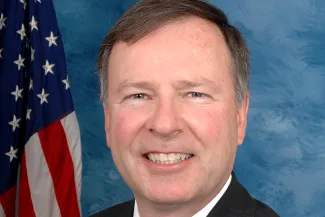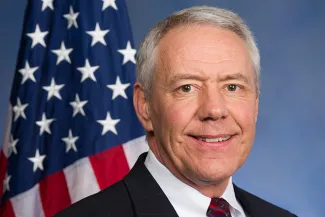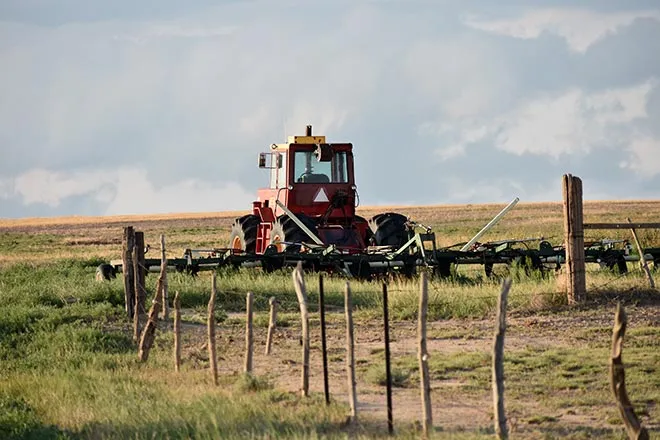
Commentary: What the 2023 election means for the 2024 election in Colorado
(Colorado Newsline) With Tuesday’s election in the books, we can turn our attention to the 2024 election and consider how this November might offer lessons for next November.
Several points stand out.
Abortion tops the list of takeaways. Across the country, voters showed a strong and persistent preference for abortion rights, even in conservative regions. Ohio voters, by a solid margin, adopted a constitutional amendment Tuesday to protect abortion and reproductive rights. Ohio voted for former President Donald Trump twice, but in the wake of the Supreme Court overturning a constitutional right to abortion last year and the emergence of cruel abortion bans in states around the county, even conservative voters have been motivated to assert their right to bodily autonomy when abortion is on the ballot.
Ohio joined several otherwise red states which had already rejected abortion restrictions, such as Kansas and Kentucky. And Tuesday offered many other signs of how reproductive justice animates the electorate. Democratic Gov. Andy Beshear won reelection in Kentucky against a Republican opponent who once supported a strict abortion ban.
In Virginia, Democrats defended their state Senate majority and flipped control of the House of Delegates. That success was widely attributed to Democrats running on the preservation of abortion access. “Abortion rights won,” Jamie Lockhart, executive director of Planned Parenthood Advocates of Virginia, said of the results.
In Pennsylvania, Democrat Dan McCaffery won a seat on the Pennsylvania Supreme Court (whose justices are elected, unlike in Colorado, where state supreme court justices are appointed by the governor). Support of abortion rights was central to the race.
What does this mean for Colorado?
Abortion access is protected in state statute, but anti-abortion activists have repeatedly tried to ban abortion even in blue Colorado. Reproductive rights advocates plan to fortify the state against restrictions by putting an abortion-access constitutional amendment on the state ballot in 2024, while anti-abortion activists plan to put their own statutory measure on the ballot. Events on Tuesday suggest that if abortion rights claim voter attention in Colorado next November the results will be catastrophic for an already disintegrating state GOP.
At risk could be conservative state House and Senate candidates. But more significantly, the state’s three (of eight) U.S. House seats still occupied by Republicans could be put further within reach of Democrats.
Rep. Lauren Boebert, Republican of Silt, is already at a grave disadvantage, thanks to her MAGA antics and public humiliations. Exacerbating these shortcomings is her extreme position on abortion.

U.S. Rep. Lauren Boebert of Silt speaks Sept. 10, 2022, during the Club 20 Western Colorado Candidate Debates at Colorado Mesa University in Grand Junction. William Woody for Colorado Newsline
Rep. Doug Lamborn, a Republican from Colorado Springs, is similarly unabashed in his support for restrictions on reproductive health care. He represents a district that shows increasing signs of opportunity for Democrats, and his anti-abortion record could be a factor at the polls next year.

Colorado Congressman Doug Lamborn
Rep. Ken Buck, a Republican from Windsor, recently announced he will not seek reelection. The salient characteristic of his most visible would-be GOP successor in the 4th Congressional District, Trent Leisy, is an unsettling devotion to Trump. Republicans, including Leisy, up and down the ballot will be implicated by their party’s association with reproductive oppression.

Colorado Congressman Ken Buck
The election Tuesday also has something to say about the electoral impact of the right’s anti-LGBTQ+ attacks. Homophobia and transphobia among conservatives have recently festered on local school boards, which bigoted ideologues, when they gain a majority, often warp into culture war battlegrounds over gender expression, race and other sensitive topics.
Voters in Colorado on Tuesday appeared to rebuke these tendencies. The conservative majority on the Douglas County school board is among the state’s most notorious, and liberal-leaning candidates there won three of three seats Tuesday, according to early results. This tracks with what appeared to be a revolt elsewhere in the country against book-banning, hate-impaired, history-denying school board candidates. Progressive momentum at the local level could grow during the heightened intensity of a presidential election.
Whatever this week’s elections mean for next year’s, the only interpretation that really matters is yours, the voter. We at Colorado Newsline recently committed to focus more in our election coverage on what’s important to families and individuals, rather than politicians. It’s part of our effort to demote “horse race” coverage, which revolves around polls and who could win rather than issues and what results could mean.
A couple of polls in recent days purport to show Trump beating President Joe Biden in a 2024 battleground-states rematch. The polls garnered much media attention, partly because it’s shocking that Trump, now indicted so many times it’s hard to keep track of his criminal cases, could still command such broad support.
But largely missing from reports about the polls is a frank account of how a second Trump term could effectively mark the end of democracy in America, and it’s reasonable to conclude that Trump’s support survives in part due the failure of journalists to convey what’s at stake in the 2024 presidential election.
Now that the 2023 election has concluded, we invite you to help us report on the next one in a way that best serves you. What issues are important to you? What should candidates be talking about? What Newsline coverage would be most meaningful to you?
The 2024 election is a year away, but we’re interested in your thoughts about it today.
Colorado Newsline is part of States Newsroom, a network of news bureaus supported by grants and a coalition of donors as a 501c(3) public charity. Colorado Newsline maintains editorial independence. Contact Editor Quentin Young for questions: info@coloradonewsline.com. Follow Colorado Newsline on Facebook and Twitter.

















